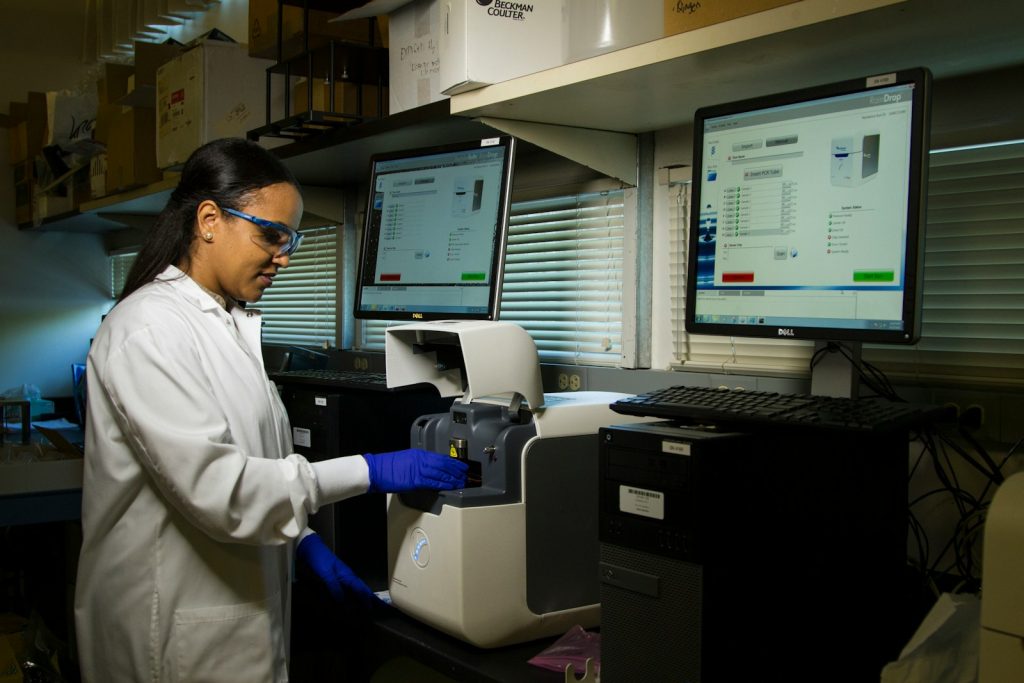In the healthcare sector, reputation is not just a matter of pride—it’s a critical asset.
A healthcare professional’s reputation can significantly influence patient trust, which is fundamental to successful patient outcomes.
Negative media coverage can have devastating consequences for healthcare professionals and their organizations. Even a single adverse report can tarnish a reputation built over years.
What are Adverse Media Checks?
Adverse media includes any negative press, from allegations of malpractice to involvement in criminal activities, published across multiple platforms.
Adverse media checks are a crucial part of background verification processes for healthcare organizations.
It is aimed at uncovering negative information about individuals from various media sources.
News Articles & Blogs
News articles are primary sources for adverse media checks. These include reports from reputable newspapers, magazines, and online news portals.
Investigating these sources helps in uncovering any publicized incidents involving healthcare professionals, such as legal issues, malpractice cases, or unethical behaviors.
While blogs might not have the same level of credibility as established news outlets, they often cover stories and personal experiences that mainstream media might overlook.
Social Media
Social media platforms are increasingly significant in adverse media checks.
Platforms like Twitter, Facebook, and LinkedIn can reveal posts, comments, or shares that might showcase unprofessional behavior or controversial opinions.
Public Records
Public records, including court documents, financial records, and regulatory filings, provide concrete evidence of adverse activities.
These records are vital in verifying the authenticity of media reports and understanding the legal implications of any adverse incidents.
Types of Adverse Media
Criminal Activity
Involvement in criminal activities is a severe concern for healthcare professionals.
Criminal records can include anything from misdemeanors to felonies, affecting the trust and safety patients place in their caregivers.
Discovering such activities during adverse media checks can help your organization make informed hiring decisions and mitigate potential risks.
Malpractice
Malpractice cases can significantly impact a healthcare professional’s career. These cases often involve allegations of negligence or incompetence, leading to patient harm.
Identifying malpractice incidents through adverse media checks helps you in assessing the professional’s competency and adherence to medical standards.
This is critical to ensure patient safety and organizational integrity.
Unethical Behavior
Unethical behavior, such as breaches of patient confidentiality, fraudulent activities, or inappropriate relationships, can severely damage a healthcare professional’s reputation.
Financial Issues
Financial issues, including bankruptcies, lawsuits, and significant debts, can be red flags for healthcare professionals.
These issues might indicate poor financial management or susceptibility to corruption.
Why Adverse Media Checks Are Essential?
Adverse media checks are essential in the healthcare industry to safeguard patient trust and maintain high standards of care.
By identifying potential risks early, your organizations can prevent hiring individuals who may bring negative publicity or legal complications.
These checks are not just about protecting your organization but also about ensuring that patients receive care from reputable and trustworthy professionals.
The Process of Conducting Adverse Media Checks
Steps Involved in Adverse Media Checks
Initial Data Collection
The process begins with collecting basic information about the individual, such as their name, professional history, and relevant identifiers.
This data serves as the foundation for further searches and ensures that the checks are accurate and comprehensive.
Media Screening
Once the initial data is collected, the next step involves screening various media sources for any adverse information.
Verification and Analysis
After identifying potential adverse media, the next step is to verify the authenticity of the information and analyze its impact.
Reporting
The final step is compiling the findings into a comprehensive report.
This report should include details of the adverse media, its sources, and the potential implications for the healthcare professional.
Tools and Techniques
Various tools and software are available to facilitate adverse media checks. Here are some of the key ones:
Google Alerts: Automatically monitors the web for new mentions of specified names or terms.
LexisNexis: Provides comprehensive news, business, and legal sources for thorough background checks.
Pipl: Aggregates data from social media, professional profiles, and public records.
Meltwater: Monitors news, social media, and blogs for relevant mentions and reports.
Factiva: Offers global news and company information, useful for extensive media screening.
Social Mention: Tracks social media mentions across various platforms.
Bing News: Another tool for setting alerts and tracking news articles.
Techniques for verifying and analyzing media sources include:
Cross-referencing Information: Verify findings by checking multiple sources.
Contextual Analysis: Understand the context in which adverse media is mentioned.
Severity Assessment: Determine the severity and relevance of the media in question.
Historical Comparison: Compare current findings with historical data to identify patterns.
Legal Validation: Confirm legal records to substantiate media reports.
Consulting Experts: Seek expert opinions for ambiguous or complex cases.
Challenges in Adverse Media Checks
Common challenges in conducting adverse media checks include:
Data Overload: Handling large volumes of information can be overwhelming.
False Positives: Incorrectly identifying someone as having adverse media due to name similarities.
Outdated Information: Relying on outdated or no longer relevant information.
Bias in Sources: Dealing with biased or unreliable sources.
Privacy Concerns: Ensuring compliance with privacy laws.
Language Barriers: Difficulty in interpreting foreign language media.
Verification Difficulties: Challenges in verifying the authenticity of certain media reports.
Solutions to overcome these challenges include:
- Using advanced filtering tools
- Employing experienced analysts
- Regularly updating information
- Cross-referencing multiple sources
- Staying compliant with laws
- Using translation services
- Engaging an adverse media checks verification company
Implementing Adverse Media Checks in Healthcare HR Practices
Integrate Adverse Media Checks into Hiring Processes
Incorporating adverse media checks into the hiring process is essential for healthcare organizations aiming to maintain high standards and mitigate risks.
Start by including a consent clause in your job applications, allowing you to perform these checks.
Regular Monitoring and Re-Evaluation
Ongoing monitoring of current employees is crucial for maintaining reputational integrity within healthcare organizations.
Adverse media checks should not be a one-time event but a continuous process.
Legal Considerations
When conducting adverse media checks, it’s vital to navigate the legal and ethical landscape carefully.
Ensure that all checks comply with privacy laws and regulations, such as the Health Insurance Portability and Accountability Act (HIPAA) and the General Data Protection Regulation (GDPR).
Best Practices for Healthcare Professionals
Proactive Reputation Management
Healthcare professionals and organizations should take proactive steps to manage their reputations.
Regularly monitor your online presence, including social media profiles and professional listings, to ensure that your public image remains positive.
Engage in continuous professional development and participate in community and professional activities to build a strong, reputable network.
Branding and a positive social media presence play a significant role in reputation management.
Share your achievements, professional insights, and community involvement on platforms like LinkedIn and Twitter.
Responding to Adverse Media
If you encounter negative media coverage, it’s crucial to respond promptly and effectively.
Start by assessing the situation and gathering all relevant information. Issue a clear, concise, and factual statement addressing the issue.
Apologize if necessary and outline the steps you’re taking to resolve the matter and prevent future occurrences.
Crisis management and public relations are vital in handling adverse media. Consider consulting a PR professional to help manage the situation effectively. Transparent and honest communication is key to rebuilding trust.
Engaging an Adverse Media Checks Verification Company
Consulting a professional adverse media checks verification company offers several benefits.
These companies have the expertise and tools to conduct thorough and accurate media screenings, saving you time and ensuring comprehensive results.
They can help you identify potential risks and provide actionable insights to protect your reputation.
Conclusion
Maintaining reputational integrity is paramount in the healthcare profession. It affects patient trust, career opportunities, and the overall success of healthcare organizations.
By implementing thorough adverse media checks, conducting regular monitoring, and adhering to legal and ethical standards, you can safeguard your reputation and ensure high standards of care.
Why AMS Inform for Adverse Media Checks?
Due to the intricate nature and critical importance of conducting thorough adverse media checks, many businesses choose to collaborate with AMS Inform.
We have over 38 years of experience in the background verification sector. Our expertise extends beyond adverse media checks to include Digital ID Verification, identity verification, educational verification, and pre/post-employment verification.
We also provide credit checks, health and drug screenings, insurance claim investigations, and language translation services.
Partnering with AMS Inform allows you to save time and ensures adherence to all relevant laws and regulations.
We operate in over 160 countries, with dedicated local teams in 16 of them, offering robust global support for your operations.
Contact our team today for personalized solutions tailored to your adverse media check requirements.
















